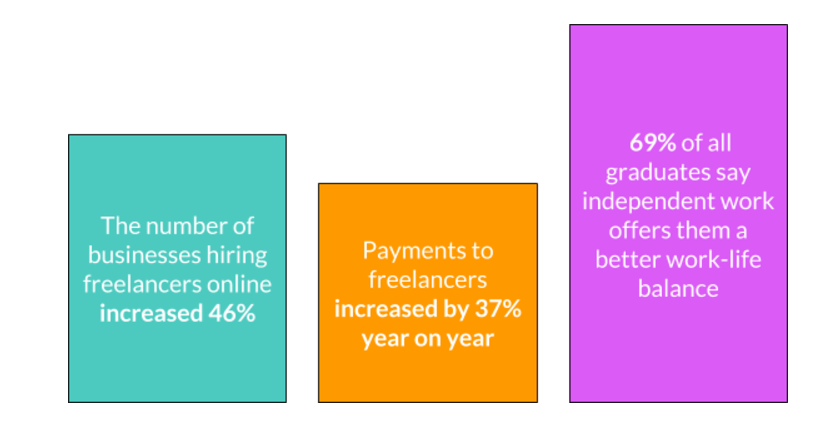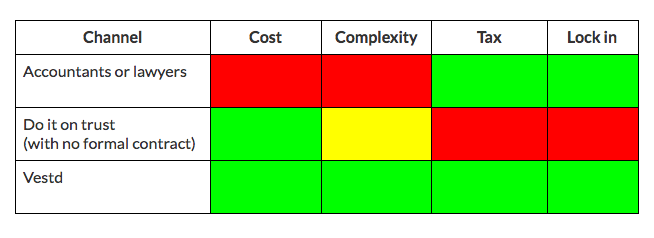The joy of shares: Boost your business this Christmas
Last updated: 13 August 2024. Giving shares to your employees can be an incredibly powerful motivator. It’s something that can have a much greater...
Manage your equity and shareholders
Share schemes & options
Fundraising
Equity management
Start a business
Company valuations
Launch funds, evalute deals & invest
Special Purpose Vehicles (SPV)
Manage your portfolio
Model future scenarios
Powerful tools and five-star support
Employee share schemes
Predictable pricing and no hidden charges
For startups
For scaleups & SMEs
For larger companies
Ideas, insight and tools to help you grow

Rewarding your equity to the very people you collaborate with in building your business can seriously ease your dependency on cash and bring with it plenty of other rewards. But we’re not talking huge great chunks of equity á la Dragon’s Den here, we’re talking micro equity — manageable amounts you can decide on. And that leaves the cash you have for the things only cash can buy, like rent, rates and equipment.
The way we work is changing
While the gig economy is now a commonplace reference, there’s still a lot of discussion about the true facts surrounding its value, but one thing is undoubted — people power is a major part of its success. There are a few possible driving factors behind this:
The new national living wage makes it more expensive to hire full-time employees
The boom in digital technology means it’s easy and efficient to work remotely
Technology also opens opportunities for ‘work gigs’ on platforms like AirBnB, Etsy and Uber
So perhaps it’s the financial incentive and the ease of setting up on your own that’s driving this trend for self employment. The stats below are from a report from Elance

The movement of the moment
This brings us to the crux of the matter. Yes, there are economic reasons why people are turning to the gig economy, but it’s more than that — for many of us our stance on what’s really important in life is shifting.
Medium and other social channels have for some time been full of posts about achieving a work life balance, or finding happiness at work and how to be more productive. Earning enough money to pay the bills and put food on the table is always going to be essential, but there are thousands of us who can manage that and still aren’t happy or productive. There’s a growing belief that we should ‘be part of something’, as esoteric as that admittedly sounds.
Darius Foroux wrote a fantastic post about how the point of life is not to be happy, but to be useful — and for those of us who can, using our skills to achieve something more than an extra zero on our paycheque could make us happier and more productive.
It’s an undeniably wonderful vision — people coming together to create, build or just do something remarkable purely so they can make a positive impact on the world. And actually, there’s a way we make it a reality.
Unleash the power of your equity
Most business owners know that their equity can be a useful tool — you know you can give it to investors in return for cash or to executives in return for commitment. But very few use it to collaborate with experts in return for their time and skills. Yet it’s such a viable solution to many of the problems businesses face — especially early stage — and ties in perfectly with the move towards more flexible and motivated work models.
Cash flow, or lack thereof
If you’re using your equity to reward experts for their contribution to your business then you can reduce your dependency on cash. Many of the startups and young businesses we talk to tell us it’s getting harder and harder to get funding from investors — the bar is set so high and investment levels in the UK fell by 20% in 2016.
And even those who do find that illusive investment still have the essentials to think of — rent for office space, service bills and the like. But if you’re rewarding just your equity, or even a part equity part cash deal, to contributors, well that frees up more cash to manage the essentials and eases the burden on your cash flow (which by the way is the major contributing factor to early stage businesses failing).
Positive working relationships
It’s also a more ‘human’ way to work together. There can be something cold in the work-pay-leave nature of cash transactions for both the business and the contributor. Wouldn’t it be better if you knew you were working with someone who had a vested interest in what you were doing? Don’t you agree that you’d have a better working relationship if you and your contributor had aligned interests and were both in it for the long term?
Having aligned interests is an important point to focus on. If someone has a piece of equity in your business, no matter how small, it could transform their relationship and interactions with you and the business. Often getting an opinion on your business from someone external can really help you see from a new perspective. But it also means it’s hard for them to understand your direction as they haven’t been part of your journey from the beginning. They, of course, want to do the best job they can, but when the contract is only for a certain amount of time or a particular task, their interests are not going to be the same as someone who is in it for the long-term.
For both business and contributor there are obvious financial benefits (we’ve all heard the story of the Facebook graffiti artist!) but the emotional gains shouldn’t be overlooked either. By exchanging equity for expertise, a framework we’ve called the equity economy, you’re investing in each other and collaborating in a way that delivers the best solution for everyone involved.
So why isn’t everyone doing it?
This way of coming together and exchanging equity for expertise isn’t new — hell, even the Romans were doing it (and as they invented plumbing we know we can trust their good ideas)! Yet for reasons that seem unfathomable in 2017, until now it’s been incredibly complex, costly and time-consuming to do.

The matrix above explains why. There have been very few routes to rewarding equity that didn’t involve first booking an appointment with an accountant or lawyer. After one phone call your bills start totting up, the headaches start coming and after weeks of back and forth you’re ready to give up. And who could blame you?
There are also of course serious risks associated with doing it yourself — namely doing it based on trust. We all start out with the best intentions but the business world is a hectic place and without a formal contract it’s easy for verbal agreements to get lost in the melee.
But in a time when we can transfer millions of stock online in nanoseconds, doesn’t it seem a bit ridiculous that exchanging equity is so complex? Whether you have a startup and your shares have no value or a business with funding, there simply shouldn’t be barriers to stop you using your equity for growth.
Opportunities for growth
Smash those barriers and the opportunities for growth are amazing. You can approach people who you couldn’t even afford a meeting with before — and because you’re rewarding them with equity in your business, they’re just as keen to start mapping out how you can best collaborate and move the business forwards. Together.
As the working world continues to challenge the way we engage with our jobs, our own capability and our capacity will also evolve. Businesses need to be able to join this movement and have access to the tools that will help them grow.
Discover more about how you can distribute your equity to collaborators easily, safely and quickly, visit Vestd.

Last updated: 13 August 2024. Giving shares to your employees can be an incredibly powerful motivator. It’s something that can have a much greater...

Being recognised for a job well done is one of the most powerful motivators at work. But when that praise comes from your peers, it can feel more...

Last updated: 13 September 2024. “Everyone who makes your business work deserves equity.” When Simon Squibb, the founder of HelpBnk, shared his...